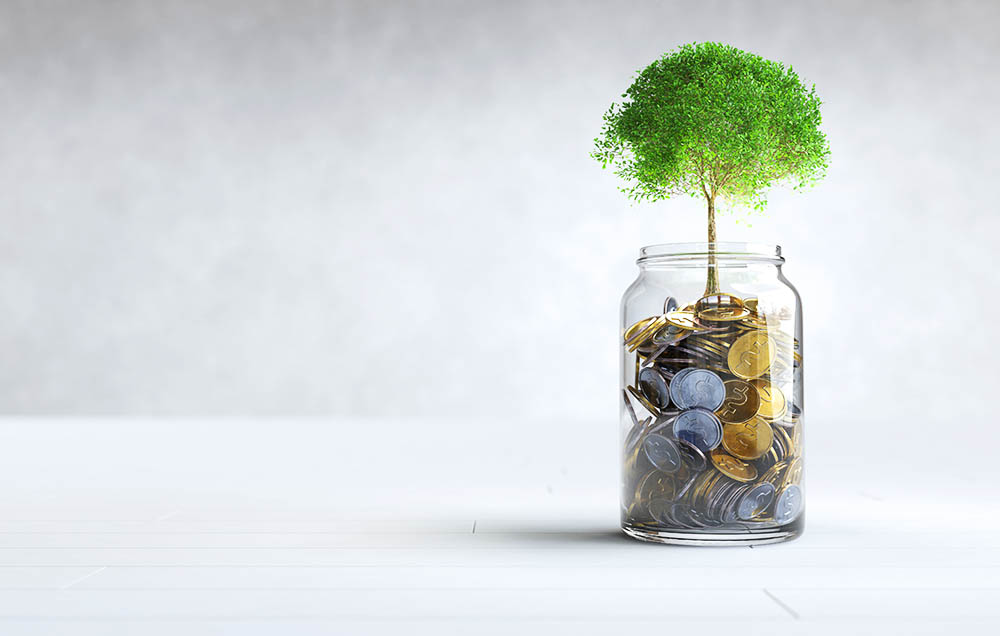In today’s uncertain economic climate, building up savings has become essential for financial security and peace of mind. There are few things more stressful than living paycheck to paycheck, and relying on credit cards and loans to get by. The inability to cover unexpected expenses can push individuals into debt and damage credit scores, causing long-lasting repercussions.
The solution to this issue is building up an emergency fund, also known as reserves. Having a solid emergency fund can provide financial security and peace of mind, allowing individuals to face unexpected expenses or income interruptions without feeling overwhelmed or stressed. In this article, we will discuss the importance of building up your savings, how to do it, and the benefits of having reserves in times of crisis.
The Importance of Building Up Your Savings
Having reserves can create a layer of financial protection during emergencies, helping individuals avoid debt or worse yet, bankruptcy from a single financial mishap. If you have money set aside, not only do you have extra cash for emergencies, but you can also avoid falling into high-cost loans or worse, digging into retirement funds.
How Much Money Should You Have in Reserves?
The amount of money that should be saved up in reserves depends on a few factors, such as the cost of living, the size of the family, the level of stability, and the consistency of income. A good rule of thumb is having at least three to six months of living expenses in reserves. Living expenses include necessities such as rent or mortgage, food, utilities, and transportation costs. It is critical to know the specific amount that you need to save based on your unique circumstances, including any debt obligations.
Where Should You Keep Your Reserves?
The ideal location for your reserves will depend on how easily and quickly you can access the funds during an emergency. Typically, money market accounts, high-yield savings, and traditional savings accounts are good options. These accounts offer easy access to funds and provide interest on the balance.
How Can You Build Up Your Savings?
The following tips will help you start building up your emergency fund:
- Set realistic goals and track your progress
- Create a budget and stick to it
- Reduce unnecessary expenses
- Automatically transfer funds to your reserve account each payday
- Use windfalls such as tax refunds, bonuses, and inheritance to shore up reserves
The Benefits of Having Reserves in Times of Crisis
Having reserves can offer several benefits, such as financial security during unexpected events such as unforeseen medical bills, job loss, or natural disasters. When individuals have reserves, they can access funds quickly without having to rely on expensive loans or credit cards. Moreover, having reserves can provide peace of mind during challenging times, which can reduce stress, allowing individuals to focus on critical issues at hand.
Avoiding High-Cost Debt
Being able to access your reserves quickly can help you avoid high-cost debt, such as payday loans, credit cards, and other forms of borrowing. These options typically have high-interest rates and fees, putting individuals farther into debt. Avoiding high fees and interest rates is especially beneficial when it is hard to make ends meet or have other financial obligations.
Protecting Retirement Funds / Investments
When unexpected events occur, some individuals may be tempted to take money out of their 401(k) or other investments to cover the costs. Unfortunately, tapping into retirement funds can result in tax penalties and loss of investment gains, putting a severe dent in retirement funds.
Peace of Mind
The security that savings provides can lead to peace of mind, reducing stress and creating space to focus on important goals. Individuals can rest easy knowing that they have a safety net to fall back on, in case things don’t go as planned.
Conclusion
In today’s uncertain economic climate, building up savings has become essential for financial security and peace of mind. Having a reserve fund can create a layer of financial protection during emergencies, helping individuals avoid debt or bankruptcy from a single financial mishap. To start building up your emergency fund, set realistic goals, create a budget and stick to it, and reduce your unnecessary expenses. When unexpected events occur, having reserves can provide several benefits, such as avoiding high-cost debt, protecting retirement funds, and peace of mind. By establishing an emergency fund or an adequate reserve, individuals can secure themselves against the unexpected and mitigate potential financial instability.
